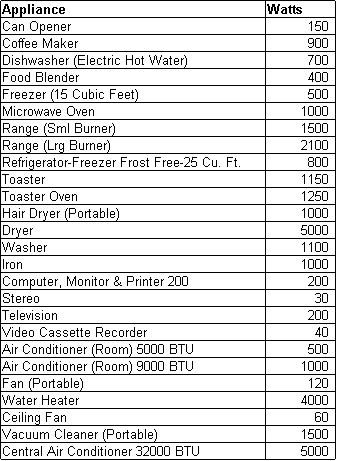As anyone who went through last year’s hurricanes can tell you, probably the worst part was being without electricity. Powerless for 5 days after hurricane Frances, our community was fortunate as many went weeks without power. With another active hurricane season predicted, are you prepared for an extended power outage?
A handful of residents in our community had generators going into the storms, some were fortunate enough to pickup generators in the aftermath, while the real troopers toughed it out. I was one of the lucky ones to be able to get a generator after Frances hit, but then came the second problem – gas. While the stores had a limited supply of generators, nobody had gas cans. After acquiring a gas can from a neighbor my next problem was getting gas. With 2 cars full of gas I couldn’t get a drop because of anti-siphon devices that automakers have installed since the gas shortages of the 70’s & 80’s. Once gas stations had power they were able to pump gas, that is until they ran out. If you were lucky to find a station pumping you were able to get some after waiting an hour in line.

Some items (motor driven) have an additional surge or startup rating.
To find out how many appliances you can run at one time simply total the watts of the appliances used.
Exceeding the rating of the generator can cause damage to the appliances and/or generator.
My purpose here is to help homeowners, if not for the hurricane veterans, for the newcomers, to understand some of the options that are available as alternatives to “roughing it”. First, unless you spend a minimum of $5,000 on a minimum 15 Kilowatt, generator backup system, you will not be able to live life as normal – at least as far as electrical appliances are concerned. This is a considerable sum of money to spend for something that you (hopefully) may not need, though I suppose you could look at it as insurance.
Alternatively, there are a good number of portable generators that you can buy, but the big question is what is a good size to get? Let me say flat out, that in my opinion, the best option is to go with one that’s roughly 5,000 watts. Unfortunately, mine is only 1,000 watts but I was able to live a lot more comfortably with this, over roughing it. With 1,000 watts you can run a freezer, several lights, a small TV and a fan – and that’s about it!
With 5,000 watts you can additionally run a refrigerator, a microwave, a couple of small, window air conditioners, washer, dryer (maybe), every light, TV & computer in the house – providing you do some power management. Obviously, if you look at the appliance wattage chart you’ll see that there’s no way that you run all of these at the same time, put you can pick and choose what you want to use – individually they all require less than 5,000 watts.
Another appliance that will work is the water heater, however unless you are an electrician you will not be able use it, as it is hard wired (no plug). The range/oven will also work if you want to pull it out from the wall and you have the right 220V adapters. Central Air Conditioner? Forget it ! The biggest problem with A/C is the startup, or surge power required, which is well over the capacity of such a generator.
With a portable generator you have some other considerations – you can run extension cords to every appliance you’re going to use or you can have a transfer switch installed by an electrician. A transfer switch gives you the ability to use a selected number of appliances or house circuits without extension cords. A ball park figure on having a transfer switch installed is roughly $500, but like the permanent backup system, it’s a matter of how much you want to pay for convenience.
You may recall that I mentioned window air conditioners a few paragraphs back. In our community window air conditioners are not permitted, and while I do not endorse breaking rules, desperate times call for desperate measures. Even a small 5,000 BTU unit, which may not be big enough to cool a master bedroom, would be adequate to cool a smaller bedroom. Just to have a single, cool room would be a blessing.
If you already have a generator now is the time to do the maintenance on it – change the oil, check the plugs, etc. If you still have gas from last year, use it up (in your car) and get fresh gas. If you’re buying a generator don’t forget the gas cans and extension cords.